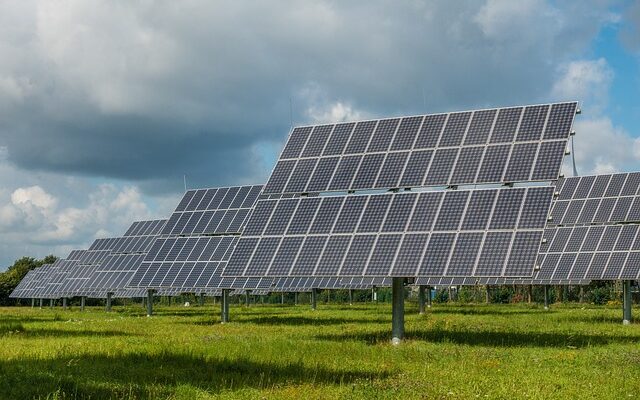By Robert Brecha, University of Dayton | – Electric vehicle sales are growing faster than expected around the world, and, sales of gas- and diesel-powered vehicles have been falling. Yet, the U.S. government still forecasts an increasing demand for oil, and the oil industry is doubling down on production plans. (The Conversation) – Why is […]
Mahsa Amini: A Year into the Protest Movement in Iran, this is What’s Changed
Mahsa Amini: a year into the protest movement in Iran, this is what’s changed By Afshin Shahi, Keele University | = Iran’s rulers continue to enforce tight public controls as the anniversary of the death of Mahsa Amini in the custody of the “morality police” approaches. Amini died after being arrested for allegedly breaching hijab […]
Summer 2023’s Climate-Driven Record-Breaking heat is not ‘The New Normal,’ since the abnormalities will Keep on Coming
Scott Denning, Colorado State University | – Summer 2023 has been the hottest on record by a huge margin. Hundreds of millions of people suffered as heat waves cooked Europe, Japan, Texas and the Southwestern U.S. Phoenix hit 110 degrees Fahrenheit (43 degrees Celsius) for a record 54 days, including a 31-day streak in July. […]
How Zinc-Ion Batteries may solve our Renewable Energy Storage Problem
By Storm William D Gourley, McMaster University and Drew Higgins, McMaster University | – (The Conversation) – Hotter summers, drier forests, rising waters: climate change is not just a threat to our future, it’s hurting our world right now. While there are many ways human activity has brought about climate change, global electricity generation sources […]
30 Years after Arafat-Rabin Handshake, clear Flaws in Oslo Accords doomed peace Talks to Failure
By Maha Nassar, University of Arizona | – On Sept. 13, 1993, the world watched as Israeli Prime Minister Yitzhak Rabin and Palestine Liberation Organization Chairman Yasser Arafat shook hands on the White House lawn. It was a stunning moment. The famous handshake between adversaries marked the beginning of what became known as the Oslo […]
Why Solar panel technology is set to be Turbo-Charged
By Bruno Vicari Stefani, CSIRO; and Matthew Wright, University of Oxford | – Solar panel technology has made enormous progress in the last two decades. In fact, the most advanced silicon solar cells produced today are about as good as the technology will get. So what’s next? Enter “tandem solar cells”, the new generation in […]
Marrakech Artisans – who have helped rebuild the Moroccan City before – are among those hit hard in the Earthquake’s Devastation
By Abbey Stockstill, Southern Methodist University | – A powerful earthquake that hit close to the medieval city of Marrakech in Morocco on Sept. 8, 2023, has killed thousands and injured many more. It has also put at risk buildings and monuments of major historic importance, among them the minaret of the Kutubiyya mosque, a […]
Climate Crisis: Greece’s Record Rainfall, Flooding, are part of a Mediterranean trend to more Dangerous Weather
By Ioanna Stamataki, University of Greenwich | – Recent images of the devastating flash floods caused by Storm Daniel in Greece hit close to home literally and figuratively. As a Greek who has completed a PhD and worked for the past eight years on flash floods, the scenes unfolding across my homeland are painfully real: […]
How Photography can Reveal, Overlook and Manipulate the Truth: The Fearless Work of Iranian Artist Hoda Afshar
By Tom Williams, University of Wollongong | – (The Conversation) – Through her poetically constructed images, Hoda Afshar illuminates a world overshadowed by history and atrocity. Yet we never see despair: we see defiance, comradeship, reinvention and a search for how photography can activate new ways of thinking. Afshar was born in Iran and migrated […]










 © 2026 All Rights Reserved
© 2026 All Rights Reserved